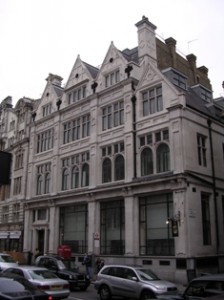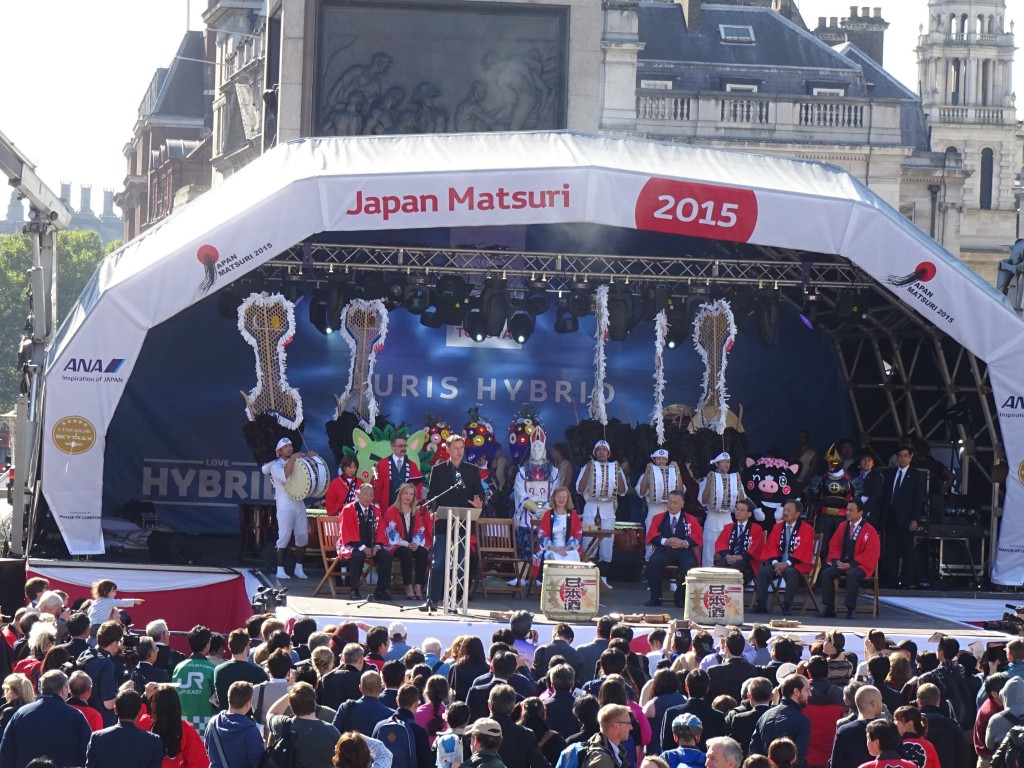 ‘Growth, Governance and Greying’ – OECD LEED in Manchester
‘Growth, Governance and Greying’ – OECD LEED in Manchester
At the end of June, JLGC researchers visited Manchester to attend the 11th Annual Meeting of the OECD LEED Forum on Partnerships, which focused on the theme of how local leadership can provide more inclusive growth. The OECD Programme on Local Economic and Employment Development (LEED) was set up in 1982 to advise governments and places on “the creation of more and better quality jobs”, in a period in which the North West of England’s deindustrialization had led to widespread job losses and dented civic pride amid an era of local government reorganization.
Japan has been slightly ahead of the curve in recognizing Manchester’s resurgent economic dynamism and status as the North’s metropolitan hub – in 2008 it appointed a Honorary Consul to the city, which remains the only such Japanese post in an English city. The need for more inclusive growth has also been identified by Japanese commentators and researchers as a key factor for the success or otherwise of the government’s own economic reforms, ‘Abenomics’.
A further parallel with Japan was provided on the day of the conference with a report published by research firm Oxford Economics for the 2016 International Festival of Business, which forecast jobs growth (particularly in the knowledge sector) for the “booming” city at 3.8% over the next five years, favourably contrasted to the likes of Tokyo, Paris and Berlin. An OECD report launched on the day, ‘Local Economic Leadership’, contrasted Manchester’s economic governance with that of Amsterdam, Hamburg and Stockholm.
A full report is available here.
Fukuoka visits London in search of transport solutions
The deputy mayor of Fukuoka City, Mr Masanao Nakazono, and three city officials visited London to discuss transport policy with Transport for London and take part in the initial round table meeting organised by Cities Today, which took place at London City Hall. At the TfL briefing, Fukuoka City staff were given a presentation on 152 years of London Underground history and current modernisation plans including line upgrades and the progress of Crossrail.
Following the TfL briefing, 14 cities, represented by mayors, deputy mayors and senior government officials, then met in London for the first of a series of international meetings, organised by Cities Today. Held from 1-3 July, the cities came together in a roundtable format in City Hall to discuss transport solutions with public and private sector organisations. The 14 cities that participated in the first 20-20 meeting were: Amsterdam, Barcelona, Campinas, Copenhagen, Dublin, Fukuoka, Gothenburg, Guangzhou, Hamburg, Hangzhou, London, Manchester, Paris and São Paulo. In addition, Budapest, Madrid, Chengdu and Helsinki plan to join the next meeting.
Fukuoka City, with a city population of 1.4 million and metropolitan area population of 5.6 million, has a transit network which consists of 32 surface and subterranean railway lines operated by several and private operators. Monorails, trams, fixed-guideway lines and buses support this primary rail network. Like other cities in Japan, walking and cycling is common.
JLGC thanks colleagues at TfL, for briefing the Fukuoka delegation and the warm welcome they gave. The Cities Today article on the 20-20 meeting can be read here.
Hyper Japan and Japan Matsuri
JLGC again put out its stall at HYPER JAPAN 2015, held 10-12 July at the O2 London, to provide information about Japan’s regions and hand out tourism brochures and advice on travel. With fashion shows, manga drawing workshops, anime film screenings and authentic Japanese food, Hyper Japan has become a must-attend event for fans of Japanese culture.
 JLGC also attended the Japan Matsuri 2015 in Trafalgar Square on 19 September. The festival continues to expand, helping relations between Japan and the United Kingdom and symbolising how much the ties are valued by so many people. 150 years ago, 19 pioneering students from Satsuma – present-day Kagoshima – in southern Japan set sail for the United Kingdom, a voyage which changed the course of history for modern Japan. They arrived in London to study and on their return to Japan lead their country’s industrial revolution. In recognition of the contribution the people of Satsuma made in the creation of the nation 150 years ago, Japan Matsuri this year featured performers from Kagoshima showing the wealth and breadth of culture in Japan today from the traditional to the contemporary.
JLGC also attended the Japan Matsuri 2015 in Trafalgar Square on 19 September. The festival continues to expand, helping relations between Japan and the United Kingdom and symbolising how much the ties are valued by so many people. 150 years ago, 19 pioneering students from Satsuma – present-day Kagoshima – in southern Japan set sail for the United Kingdom, a voyage which changed the course of history for modern Japan. They arrived in London to study and on their return to Japan lead their country’s industrial revolution. In recognition of the contribution the people of Satsuma made in the creation of the nation 150 years ago, Japan Matsuri this year featured performers from Kagoshima showing the wealth and breadth of culture in Japan today from the traditional to the contemporary.
TMG Invest in Tokyo Event
Tokyo Metropolitan Government (TMG) held an ‘Invest in Tokyo’ event in London, on July 14, at the Ambassadors Bloomsbury Hotel, which JLGC helped to promote and assisted. The event was an opportunity to hear from TMG staff about the new Special Economic Zones system introduced by the national government of Japan, and to show the assistance from TMG for foreign businesses wishing to set up in the Tokyo area. Tokyo drives the Japanese economy by leveraging its huge consumer market, a wealth of talent, and has highly developed infrastructure. The objective of the special economic zone is to transform Tokyo into a business and innovation center making it more attractive to global companies. Moreover, as Tokyo boosts preparations to host the 2020 Olympic and Paralympic Games, there are a myriad of business opportunities the fast-paced city.

